Ageing Well National Science Challenge
 The Ageing Well National Science Challenge vision is to add life to years for all older New Zealanders. This will be achieved by harnessing science to sustain health and wellbeing into the later years of life. The mission of Ageing Well is to push back disability thresholds to enable all New Zealanders to reach their full potential through the life course with particular reference to the latter years of life.
The Ageing Well National Science Challenge vision is to add life to years for all older New Zealanders. This will be achieved by harnessing science to sustain health and wellbeing into the later years of life. The mission of Ageing Well is to push back disability thresholds to enable all New Zealanders to reach their full potential through the life course with particular reference to the latter years of life.
Email ageingwell@otago.ac.nz
Web ageingwellchallenge.co.nz
ASPIRE2025
 ASPIRE2025 is a partnership between major New Zealand research groups carrying out research to help achieve the Government's goal of a tobacco-free Aotearoa by 2025. ASPIRE2025 brings together leading tobacco-free researchers and health service groups in New Zealand and strengthens existing collaborations. ASPIRE2025 was awarded the status of a University of Otago Research Theme in November 2011.
ASPIRE2025 is a partnership between major New Zealand research groups carrying out research to help achieve the Government's goal of a tobacco-free Aotearoa by 2025. ASPIRE2025 brings together leading tobacco-free researchers and health service groups in New Zealand and strengthens existing collaborations. ASPIRE2025 was awarded the status of a University of Otago Research Theme in November 2011.
Email aspire2025@otago.ac.nzWeb aspire2025.org.nz
The Burden of Disease Epidemiology, Equity and Cost-Effectiveness Programme (BODE3)
 The Burden of Disease Epidemiology, Equity and Cost-Effectiveness Programme (BODE³) was a Health Research Council funded research programme. It has studied the health and wider societal gains, costs, cost-effectiveness and equity impacts of health sector interventions, and has built capacity in modelling of health sector interventions.
The Burden of Disease Epidemiology, Equity and Cost-Effectiveness Programme (BODE³) was a Health Research Council funded research programme. It has studied the health and wider societal gains, costs, cost-effectiveness and equity impacts of health sector interventions, and has built capacity in modelling of health sector interventions.
Health Research Council funding for the BODE3 Programme officially finished in January 2022. This programme of research has produced important evidence on the health impacts and cost effectiveness of a range of policies and interventions for Aotearoa New Zealand. It has also supported many staff in developing skills in the field of epidemiological/health economic modelling. Going forward, there are a number of modelling research projects that will be continuing in the Department of Public Health and these projects will form a research network: SiHMNet: Simulation Health Modelling Network. Additional work that builds on BODE³ tobacco modelling is being led by the University of Melbourne.
Email bode3@otago.ac.nz
Web otago.ac.nz/wellington/publichealth/research/bode3
Centre for Health, Activity and Rehabilitation Research (CHARR)
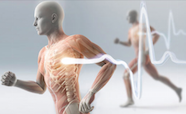 Alongside our high quality postgraduate and research programmes, research at the School of Physiotherapy is managed through our dedicated Centre for Health, Activity, and Rehabilitation Research. Research and knowledge transfer are integral parts of the School of Physiotherapy's activities.
Alongside our high quality postgraduate and research programmes, research at the School of Physiotherapy is managed through our dedicated Centre for Health, Activity, and Rehabilitation Research. Research and knowledge transfer are integral parts of the School of Physiotherapy's activities.
Research project areas:
- Physical Activity and Health
- Healthy Ageing
- Sports Concussion and Injury Prevention
- Clinical Biomechanics and Medical Technologies
Email donna.keen@otago.ac.nz
Web otago.ac.nz/physio/research
Centre for Translational Research
 The Centre for Translational Research (CTR) is a central research facility at the University of Otago, Wellington. It is designed to forge world-class research programmes that will accelerate the transfer of clinically-relevant scientific knowledge.
The Centre for Translational Research (CTR) is a central research facility at the University of Otago, Wellington. It is designed to forge world-class research programmes that will accelerate the transfer of clinically-relevant scientific knowledge.
Translation of non-clinical research that results in real world clinical applications is a major challenge for biomedical researchers. With increasing sub-specialisation in both medical and basic biomedical disciplines, such knowledge transfer can become fragmented unless concerted efforts are made to promote their integration. A hallmark of those involved in the CTR is a willingness to collaborate on projects which utilise both scientific and clinical expertise. This is in recognition of the importance we believe translational research provides in generating answers to clinical problems.
The following topics are of particular interest:
- Energy and metabolism
- Neurocritical care
- Cardiovascular genetics
- Exercise and environmental physiology
- Clinical physiology and biomedical engineering
- Paediatrics
- Acute and chronic airways disease
- Sleep medicine
Email ctr@otago.ac.nz
Web otago.ac.nz/uow-physiology/index.html
Christchurch Heart Institute
 Here at the Christchurch Heart Institute we help save thousands of lives through research into improved diagnosis, better prediction and advanced treatments for heart disease. Our team of internationally-renowned experts directly play a role in increasing the survival of New Zealanders with heart disease.
Here at the Christchurch Heart Institute we help save thousands of lives through research into improved diagnosis, better prediction and advanced treatments for heart disease. Our team of internationally-renowned experts directly play a role in increasing the survival of New Zealanders with heart disease.
Our research is focused on:
- New blood tests for heart attack diagnosis and prognosis
- Using new methods for treating heart failure and improving outcomes
- Understanding the genetics of heart disease; why heart disease runs in some families
Email chi@otago.ac.nz
Web otago.ac.nz/chch-heart-institute/index.html
Edgar Diabetes and Obesity Research (EDOR)
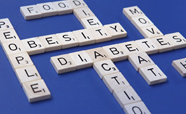 Our mission is to make a significant contribution to reducing the global burden of diabetes and obesity through research and dissemination of knowledge. We aim to reduce the prevalence, and to improve the management, of diabetes and obesity by finding new ways to prevent and treat these conditions. By striving for research excellence and encouraging international collaboration we can bring the greatest benefit to New Zealanders and the wider world. We're sharing our discoveries with individuals, communities, teachers, health professionals and policymakers.
Our mission is to make a significant contribution to reducing the global burden of diabetes and obesity through research and dissemination of knowledge. We aim to reduce the prevalence, and to improve the management, of diabetes and obesity by finding new ways to prevent and treat these conditions. By striving for research excellence and encouraging international collaboration we can bring the greatest benefit to New Zealanders and the wider world. We're sharing our discoveries with individuals, communities, teachers, health professionals and policymakers.
Email diabetes@otago.ac.nz
Web otago.ac.nz/diabetes
Hauora Manawa / Heart Health: The Community Heart Study
 This research aims to collect data on the current levels of established heart disease, levels of previously undiagnosed diabetes, cardiovascular disease and their risk factors in randomly-selected population samples from two diverse Maori communities, Ngati Kahungunu ki Wairoa in Hawkes Bay, and Mana Whenua ki Waitaha in Canterbury, as well as a non-Maori control group in Canterbury.
This research aims to collect data on the current levels of established heart disease, levels of previously undiagnosed diabetes, cardiovascular disease and their risk factors in randomly-selected population samples from two diverse Maori communities, Ngati Kahungunu ki Wairoa in Hawkes Bay, and Mana Whenua ki Waitaha in Canterbury, as well as a non-Maori control group in Canterbury.
Web otago.ac.nz/christchurch/research/mihi/research/otago015860.html
Health, Environment and Infection Research Unit (HEIRU)
 The Health, Environment and Infection Research Unit is a collaboration of researchers focused on the impact of infectious diseases and adverse environmental factors on population health. We use a range of research methods to investigate these health concerns; to identify effective interventions to reduce the burden of disease and inequalities; and to support the move to greater environmental sustainability. HEIRU aims to provide evidence-based recommendations and advice to support New Zealand and international agencies and practitioners in their disease prevention and control activities.
The Health, Environment and Infection Research Unit is a collaboration of researchers focused on the impact of infectious diseases and adverse environmental factors on population health. We use a range of research methods to investigate these health concerns; to identify effective interventions to reduce the burden of disease and inequalities; and to support the move to greater environmental sustainability. HEIRU aims to provide evidence-based recommendations and advice to support New Zealand and international agencies and practitioners in their disease prevention and control activities.
Email michael.baker@otago.ac.nzWeb otago.ac.nz/wellington/publichealth/research/heiru
Healthier Lives – He Oranga Hauora National Science Challenge
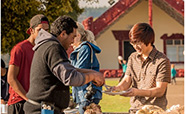 The Healthier Lives – He Oranga Hauora National Science Challenge is a national research collaboration dedicated to achieving healthier lives for all New Zealanders.
The Healthier Lives – He Oranga Hauora National Science Challenge is a national research collaboration dedicated to achieving healthier lives for all New Zealanders.
It undertakes collaborative research aimed at equitably improving the prevention and treatment of four major non-communicable diseases:
- Cancer
- Cardiovascular disease
- Diabetes
- Obesity
Our vision
He Oranga Hauora kitenga
Aotearoa hei whenua he ōrite ngā putanga hua hauora mō te tangata, kia iti iho hoki ngā pīkauranga o ngā māuiui kāore e taea te tuku ki te tangata kē.
Healthier Lives vision
New Zealand with equitable health outcomes and a substantially reduced burden of non-communicable diseases.
Many factors impact on the health of New Zealanders, including systems that affect the whole population, cultural factors that relate to particular communities, and the genetic make-up and life experiences of individuals.
Healthier Lives' research is therefore focussed within three themes:
- Healthy food and physical activity environments
- Culturally centred health interventions for Māori and Pacific peoples
- Precision medicine and personalised prevention
Email healthier.lives@otago.ac.nz
Web healthierlives.co.nz
Health Promotion and Policy Research Unit (HePPRU)
 The Health Promotion and Policy Research Unit aims to foster excellence in research in health promotion and public health policy. HePPRU works in collaboration with policy-makers and policy advocates to advance the good health of the peoples of Aotearoa/New Zealand through independent, critical and innovative research, teaching, and community service.
The Health Promotion and Policy Research Unit aims to foster excellence in research in health promotion and public health policy. HePPRU works in collaboration with policy-makers and policy advocates to advance the good health of the peoples of Aotearoa/New Zealand through independent, critical and innovative research, teaching, and community service.
Email louise.signal@otago.ac.nzWeb otago.ac.nz/heppru
Search the Health Sciences Expertise Database
 The Division of Health Sciences benefits from its high calibre of staff and their wide range of skills and research expertise.
The Division of Health Sciences benefits from its high calibre of staff and their wide range of skills and research expertise.
Our Staff Expertise Database provides details on University of Otago, Health Sciences staff. Each staff profile provides information on qualifications, current academic position, contact details, and a summary of research and publications.
You can search our database by keyword (eg cardiovascular) or by name.
Health Sciences expertise database
Stroke neurology
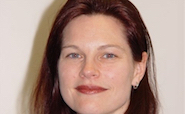
“Professor Anna Ranta's research focuses on stroke epidemiology and service delivery optimisation, service integration, health equity and knowledge translation. She is a Consultant Stroke Neurologist with Capital, Coast, and Hutt Valley District alongside her roles as Head of the Department of Medicine and Professor of Neurology at University of Otago Wellington. She is also the Clinical Co-Director for the National Hyper-Acute Stroke Service.
Current research projects include:
- Developing a national stroke data strategy with Te Whatu Ora
- Co-designing community stroke interventions for Māori living in rural areas
- Ongoing work on the REGIONS Care Study including linking data with the Integrated Data Infrastructure (IDI)
- Co-leading a Health Research Council programme grant sub-study on IDI data linkage to determine nationwide stroke epidemiology as part of the ARCOS V Study
- Evaluating Telestroke models of care in the pre-hospital and post-discharge settings
- Assessing the FeSS (“Fever, Sugar, Swallow”) tool within NZ Stroke Hospitals
- Testing feasibility of stroke service support in Pacific Islands
- Assessing an Atrial Fibrillation electronic decision support tool
Professor Ranta is accepting enquiries for PhD opportunities.
Email anna.ranta@otago.ac.nz
Web otago.ac.nz/healthsciences/expertise/profile/index.html?id=2356
Virtual Health Information Network
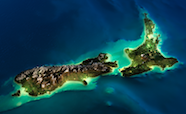 The Virtual Health Information Network (VHIN) assists researchers to do high quality health research using the Integrated Data Infrastructure (IDI) and other administrative health data.
The Virtual Health Information Network (VHIN) assists researchers to do high quality health research using the Integrated Data Infrastructure (IDI) and other administrative health data.
A deeper understanding of the IDI and increased awareness of data quality issues can be gained via our resources including:
- Website guides
- Online discussions
- Analytical code available from VHIN research
- Meetings about current IDI research
Email: vhin@otago.ac.nz
Web: vhin.co.nz
..
